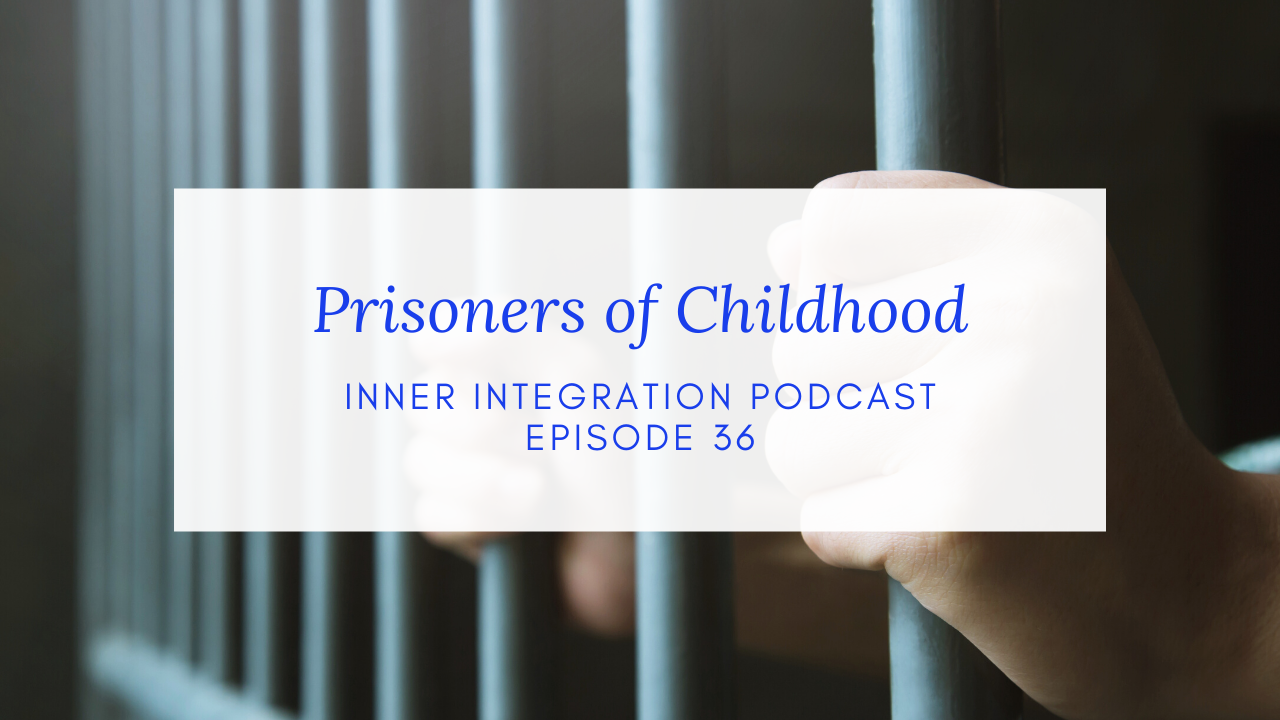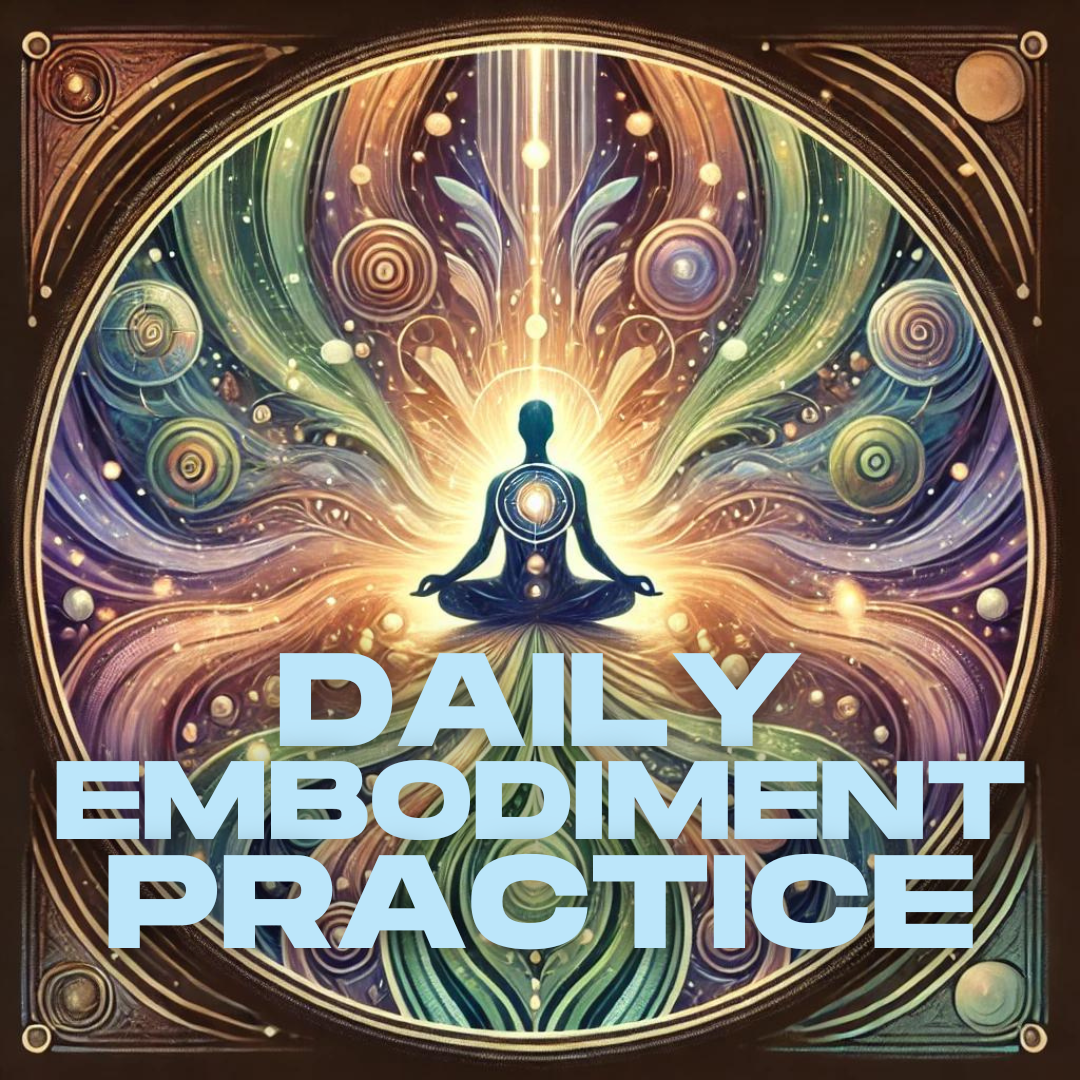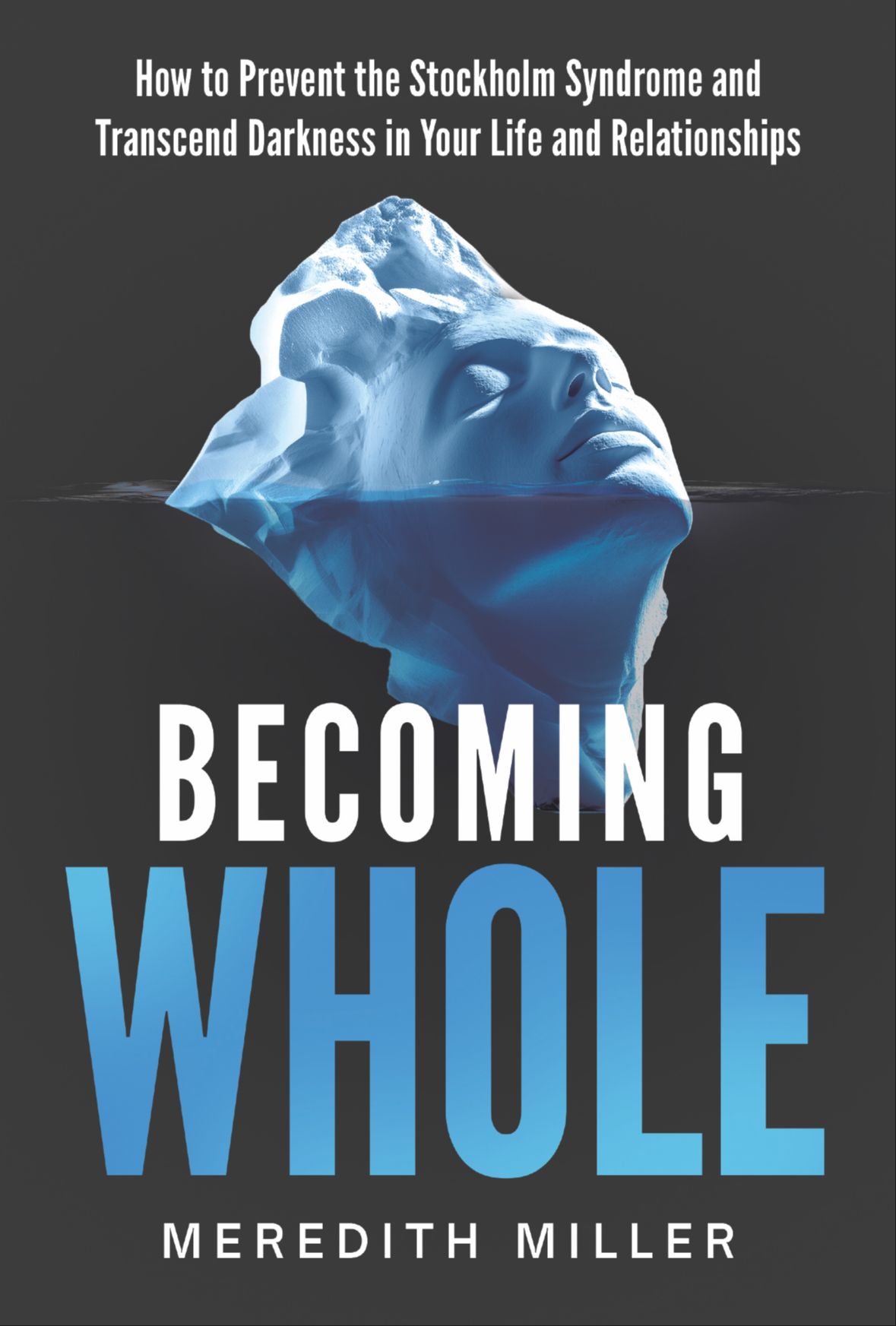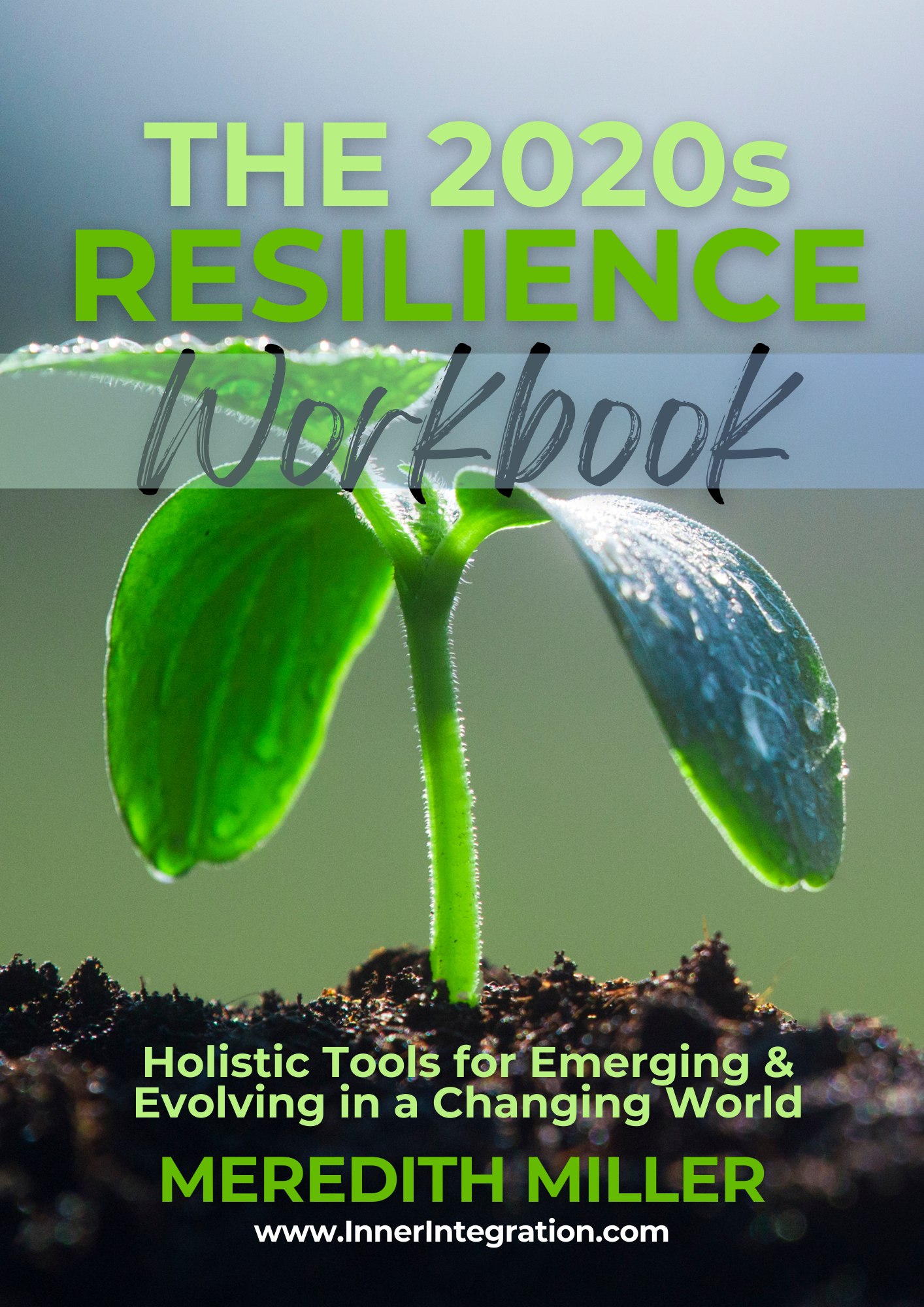Prisoners of Childhood

I was long overdue to read “The Drama of the Gifted Child” by Alice Miller and I finally read it recently. It’s one of the psychology classics from the 20th century.
In this episode, I’m going to share some insights I got from the book to help you in your recovery after narcissistic abuse. There are some gems in here!
My commentary on this book will hopefully help you to get a deeper understanding of your childhood patterns and make some new connections to your current adult patterns in terms of where they came from.
If you’re a parent, especially a mother, or if you’re planning to be one someday, you’re not going to want to miss these important insights that Alice Miller shares in her book.
First I want to clear up the title of the book. It’s a shame the title got lost in translation. This book was originally written in German and the title meant, “Prisoners of Childhood,” which is much more accurate. I actually stayed away from this book for so long despite the recommendations because the title turned me off. I was recently listening to an interview on the Tim Ferriss podcast with Dr. Gabor Maté who mentions this as one of his favorite books and he said that the original title was actually, "Prisoners of Childhood.” That made a lot more sense so I ordered the book.
Dr. Maté mentioned during that interview that when Alice Miller says “gifted child” she means “sensitive child.” Nowadays some people talk about HSPs or Highly Sensitive People and empaths. While all of those might be true, I’m still not wild about focusing on being special or someone who is somehow better than those who are not sensitive or gifted. I believe normal humans are empathic and it’s those with certain personality disorders who lack the normal human ability to feel empathy for others. I just feel that focusing on being “gifted, sensitive, empathic” just isn’t a point that really helps a person change their life after abuse and neglect from childhood or even adult relationships. If anything, I think that could have the opposite effect as I read sometimes in comments where people write things like, “this only happened to me because I’m an empath” or “…because I’m an HSP.” "Abusers are attracted to me because I’m gifted.” Getting stuck in these ideations of grandiosity will stop a person from doing a deeper self-assessment in order to discover the inner patterns that need to be changed in order to stop tolerating abuse and also to heal from it.
Prisoners of Childhood is much more accurate to describe the early life experiences that Miller writes about in her book, the kinds of experiences that follow a person for a lifetime until they figure out what’s going on. This idea of prison sounds ugly, uncomfortable, undesirable. No one wants to live like that. For those who had traumatic childhood experiences, especially those who missed out on the most important bonding opportunity of a lifetime during the first few days and weeks of life with the mother, this is exactly what childhood felt like, a prison.
Miller describes those first days and weeks of life as the key moments for creating a secure and healthy attachment with the mother that will affect the rest of the person’s life. When it’s missed (through a traumatic birth, premature birth and then an incubator in the hospital, the death of the mother, war, poverty or because of having an uninterested mother, or one who was self-absorbed), when this moment of unconditional love and secure attachment is missed we can never recreate that despite all the unconscious seeking to do in adulthood through repetition compulsion. Unfortunately for those of us who missed it, we will never know what it feels like to have received that secure attachment as an infant.
Until and unless we wake up to the reality of what happened to us as children and really allow ourselves to face that truth and feel the pain caused by it so we can mourn that loss, we will instead spend the rest of our lives chasing what we didn’t get. This is why the repetition compulsion as adults never works because it can’t work. No other human can recreate what we missed out on because those first few days and weeks of our life were the moment. In addition, the people we unconscious seek to project our repetition compulsions onto often turn out to be very similar to our mother and/or father who failed us as children.
So now what?
I’m going to get into what we can do now as adults as I comment on Miller’s theories and insights that she shares in the book.
She starts off on page one with the most powerful passage of the book: “We have only one enduring weapon in our struggle against mental illness: the emotional discovery of the truth about the unique history of our childhood... The truth often seems unbearable to us. And yet the truth is so essential that its loss exacts a heavy toll, in the form of a grave illness. In order to become whole we must try, in a long process, to discover our personal truth, a truth that may cause pain before giving us a new sphere of freedom.”
“The truth is so essential…” let that really sink in. I believe this is the essence of the book and what Miller was communicating from her experience as a therapist. She writes that facing this truth “is the only route by which we can at last leave behind the cruel, invisible prison of our childhood.”
When Miller writes about facing the truth, she means that we develop awareness of what happened to us in childhood, of our unconscious patterns now as adults, those things that we are doing to stuff the unconscious feelings we have from childhood, and of course then it’s necessary to take the responsibility in our hands to transform our lives. Most people who went through this probably take it to their grave and that’s really sad. We could also get stuck in that first part about developing the awareness of what happened in childhood. We could get stuck in the blame of our mother or parents for failing us when we most needed them. And I’m not saying it wasn’t their fault or responsibility because it was and they failed. Yet still we can’t get stuck focusing on them and what they did. We need to move to the next step, to recognize how those childhood imprints caused the patterns that we are repeating unconsciously as adults in an attempt to avoid the pain of our experiences. That’s part of our self-responsibility. And then we need to take it one step further, to truly feel how we feel about what happened in childhood, to acknowledge and validate the feelings we had to repress for decades, because through feeling it we can heal it and transform our lives. As I often say, everyone can do this, but it’s not the easy path. That’s why not everyone chooses to transform their life.
What’s the alternative? As Miller writes, “Most people do the opposite. They are driven by unconscious memories and by repressed feelings and needs that determine nearly everything they do or fail to do.” What she’s describing is Freud’s repetition compulsion. We repeat the same patterns over and over again and in Einstein’s definition of insanity, expecting different results.
Miller warns us that parents who didn’t experience a healthy environment as kids will continue to seek what their own parents didn’t give them. She says the most important thing to the child is “The presence of a person who is completely aware of them and takes them seriously. When people didn’t get that experience as kids yet they’re ignoring their own repressed life history, they will seek a substitute gratification through their own kids.” This is how it keeps getting passed on from generation to generation until someone wakes up and decides that it ends with them, then follows through with the inner work.
When we are raised by a mother or parents who aren’t aware of us or our needs, as children we needed to adapt ourselves to intuit the needs of the mother or parents. In meeting our parents’ needs we realized that were able to secure “love”. We sought security through feeling needed by our parents, which was really an exploitation as Miller points out. As a result of that, we develop the ability to not experience our feelings. This is also why we might find ourselves as adults care-taking abusive, alcoholic or addicted people.
Miller writes, “A child can experience her feelings only when there is somebody there who accepts her fully, understands her and supports her.”
We repress our emotions in order to survive as kids so later in life we do the same in order to maintain relationships with others as adults. We deny our own feelings and needs, we develop self-sacrificing and people-pleasing behaviors, which is exactly what abusive people are looking for.
Miller says that early life abandonment like this creates the impulse to substitute our unmet childhood needs as adults through joining cults and groups, turning to alcohol, drugs, or sexual perversions. I would add to that list abusive relationships or relationships with unavailable partners, addictions to food, gambling, shopping, achievement or even workaholism. One or some of these and other addictions become our go-to distractions that we use to mask our pain.
Miller writes about how repressing our emotions from childhood leads to depression and a sense of inner emptiness, loneliness as well as futility and fear of impoverishment. She says "these can usually be recognized as the tragic loss of the self in childhood manifested as the total alienation from the self in adulthood.”
I think it’s sad that there seems to be a belief in psychology nowadays that tells people who have clinical depression that they can be depressed for no reason. I just don’t believe that. I believe there’s always a reason, even if that reason is unconscious to the person who is suffering from depression. As Miller writes “a depressive mood often hides a tragic history.”
She also writes, “grandiosity is the defense against depression and depression is the defense against deep pain over the loss of the self that results from denial… Depression can lead you to close your wounds, but only mourning for what you have missed at a crucial time can lead to real healing. Depression consists of a denial of one’s own emotional reactions.”
Miller writes of the “pretended love” or the illusion of love that causes repressed rage in the child. She says there is “vast damage produced by hypocrisy in families and society as a whole.”
What is she talking about? Well when your parent pretends to love you or gives you the illusion of love, that creates a betrayal deep in your subconscious where the truth hides. By now you’ve probably heard the term “love-bombing” and you’ve heard me hopefully talk about how dangerous that phase of the abuse is because on the surface it doesn’t look like abuse. It is however, hollow, shallow and empty. It’s fake love. It’s fake concern. That’s devastating as an adult to experience but when you’re a kid that is deeply scarring to your sense of trust in others and it also sets you up for self-deception. It’s often very hard to understand why you might feel so much anger toward a parent if they do the hypocritical love-bombing tactics. When you realize that your parent doesn’t really love you for who you are, they only love you for what you do for them and they only show you “love” when you’re meeting their needs or when they want you to do something for them, that’s both sad and also enraging. Until we can see through the love-bombing, we might not know we are sad or angry, or we might feel the sadness and anger but not know where they’re coming from.
Miller says we need to feel the rage and rebel against the way we were treated. We need to identify the repressed needs that we have since childhood. When we are able to recognize that and face the truth, we can then choose to be present with that truth instead of pushing it away. We can allow ourselves to truly experience the pain of that truth so we can allow a breakthrough of childhood feelings, so we can grieve and can end our self-deception. When we can identify who or what caused the pain and really dive into the feelings around that, the depression disappears, the distractions disappear, and the psychosomatic suffering goes away too.
Miller mentions that often times we can’t remember how we felt as young children so the memories of pain during our years of puberty are often more accessible. So if you can’t access your childhood, reflect back to the suffering of your teenage years to see if you can locate the rabbit hole.
Miller writes that you need to grieve “the reality that you were never loved as a child for what you were, instead needed and exploited for your achievements, success and good qualities.”
She says as adults we often seek these unmet needs through groups. This is “The illusion that the unmet needs of the former child can eventually be fulfilled by the group in the adult. With such illusions, no one can truly heal.” She said we will find ourselves “denying our true self in order to get acceptance and love by the peer group, just as we did with our parents. So it’s like breaking away from our parents' social system with the help of another one but still being in the same thing. Miller says this is like “living as though the availability of the parents could still be salvaged.”
The only way out is to feel and allow ourselves to grieve what we lost, what we never had, what we can never get back. It happened and there’s nothing we can do to change that now. The only thing we can do is take responsibility for ourselves now and moving forward.
If you want to be a parent one day, it’s really important that you do this inner work instead of passing it on unintentionally to your kids. Miller writes about how many people are “unconsciously avenging on their child for an earlier humiliation.” The thing is though, we can’t just decide and declare that we won’t repeat our parents’ patterns. We have to fully acknowledge and feel the pain so we can grieve it and stop repeating it.
Miller describes how “this unrestrained use of power is tolerated by society. The child is regarded as the parents’ property in the same way citizens of a totalitarian state are considered the property of its government.” This is still true for the most part today. The suffering of kids as a result of their parents is minimized by society. You’ve probably heard things from ignorant people like “your parents probably had a difficult childhood too” or “they’re still your parents.” Those minimizations could confuse a person into thinking something is wrong with them for acknowledging that what happened in childhood was not okay and it was deeply traumatizing. These phrases could confuse a person into continuing to stuff the feelings they have about what happened in childhood, therefore continuing in the depression and repetition compulsion.
Miller writes, “It’s absolutely urgent that people become aware of the degree to which this disrespect of children is persistently transmitted from one generation to the next, perpetuating destructive behavior.” I agree 100%. This is what I refer to as the Legacy of Abuse. It becomes the legacy of families like that.
Miller mentions that when older children become aware and tell their parents, their parents have the opportunity to recognize their failures and apologize.
That will likely be the case with most people who failed in those early days and months of parenthood due to reasons like war trauma, poverty, illness, and ignorance of their own issues. However, if you attempted this conversation with a narcissistic parent, like me, you probably realized they didn’t recognize or admit their failures. In fact they probably turned it around on you. They probably did a lot of blame-shifting like telling you “you’re angry", or denied any wrongdoing like telling you “I’m just shocked that you think I was so cruel” or maybe they flat out refuse to remember what really happened “I don’t recall” or maybe even after going through a few rounds of those evasion and gaslighting tactics, they managed to scrape up a fauxpology only to take it back later or to continue doing the same abusive things they always have. With parents like narcissists, psychopaths and sociopaths, and untreated borderlines, you’re just unfortunately not going to have a productive conversation about this because of their internal firewall that protects them from taking self-responsibility.
Miller mentions that idealization is a childlike tendency. When we are still idealizing our parents or our childhood or when we find ourselves still stuck in the emotional state of childhood, as adults we will idealize other people like our partner, boss, friend, a group, or even a teacher or role model. This can lead to love addiction when we haven’t broken the idealization trance from childhood and this is dangerous because we can end up idealizing abusive people and groups. We the people are not perfect and it’s not healthy to put anyone on a pedestal.
Miller also warns that “parents’ exploitation of their child can lead to a long series of sexual and non-sexual abuses, which the child will be able to discover only as an adult in therapy and often not before he himself is a parent.”
That is spot on. My memories of my grandfather sexual abusing me finally broke through when I was 33yo during an emotional balancing class in acupressure school. I didn’t really seek out talk therapy because I found that holistic medicine worked better for me, so the therapy that helped me break through that veil of awareness was acupressure. The students were working on each other in class so we could learn the techniques and while my partner was doing the work on me, it suddenly came through.
I recently heard Marci Hamilton speaking. She’s a law professor at the University of Pennsylvania, who is fighting to change the laws of statutes of limitation in child abuse cases and she also has a think tank called Child USA to prevent child abuse and neglect. She said a German study recently showed the average age that people speak up about child sexual abuse is 52yo. 52! I’ve also heard from clients and friends who are parents, that as their child reached the age of their own childhood traumas, they started having flashbacks and realizations about what really happened to them.
Miller writes, “A person’s whole development is dependent on the way his mother experienced his expression of needs and sensations during his first days and weeks of life then we must assume that it is here that the beginning of a later tragedy might be set.”
When we have repressed memories from childhood, we have what Miller calls a “fascination of tormenting relationships… in our struggle to find a better outlet at last.” Raise your hand if you’re tired of that!
The bottom line is we can’t heal the wound of not being loved unconditionally as infants without mourning that loss. The past can’t be changed so all we can do now is accept what happened by truly allowing ourselves to feel the rage, resentment, shame and fear or whatever other emotions come up in our conscious exploration of the past as well as acknowledging the reasons for those feelings. It sucks no doubt, but if we don’t deal with this, as Miller writes we will “either resist or cover it up” through grandiosity and/or depression or we will constantly tear open those wounds again in the compulsion to repeat the obsessive behaviors, the perversions, the self-destructive or destructive behaviors.
Speaking of the repetition of self-destructive behaviors, I have a short course called Ending Self-Sabotage that will help you identify those primitive defense mechanisms that likely started since childhood and are continuing nowadays. When we are raised by parents who sabotaged us, it’s normal that we developed self-sabotage behaviors. You’ll get to explore those and in that course I also teach you how to upgrade each of those primitive defense mechanisms into more mature ones that help you rebuild your self-esteem and create the life you want to be living. You’ll find Ending Self-Sabotage on my website and the direct link is in the show notes.
Miller says "addictions often cease when the patient begins to experience his own feelings and can recognize his true needs.”
I can relate to that. About 3.5 years ago I suddenly quit smoking cigarettes. I had quit many times before that but it never stuck. I would always go back and it was always such a struggle to avoid cigarettes. But one day in March 2016, I woke up and just didn’t smoke. It wasn’t a conscious decision. It just sort of happened. I couldn’t really explain it to myself until I read this book and had the epiphany of why that happened. That was the same month that I finally let myself truly face the truth about my mother and how I felt about what she had been doing to me all my life. I had made the mistake of telling her on the phone a few weeks prior that my business was starting to take off and I was helping people around the world and I even shared some of my dreams of where Inner Integration would go from there. Admittedly, I was looking for her approval. She sounded kind of sympathetic and supportive on the phone. But 2 weeks later she sent my birthday card in the mail with a very covert message using a Mother Theresa quote that said, “We can do no great things in life, only little things, with great love.” Now most people would look at that on the surface value and think nothing of it, and that’s exactly how she gets away with her meticulous and sophisticated form of abuse. It’s so plausibly deniable. In the moment I read those words I understood finally how she was trying to push me down all my life. For my birthday, of all days of the year, she chose to covertly remind me to play it small after that phone call in which I told her of my big dreams. That breakthrough realization of who she is and what she’s done all my life allowed me to really feel pissed off about it, resentful toward her, angry about my own mother not cheering me on like a normal mother who would be on the team of her kids. I was upset for days but it wasn’t the futile type of suffering where you lament your situation and stay in it. Instead it was like I finally let myself start to grieve. I processed a lot of feelings and somewhere in there, without even thinking about it consciously, I just stopped smoking cigarettes. The rest of the pack I had stayed in my drawer until I moved 11 months later and I never went back to it or even felt the desire to.
Miller writes “what is unconscious cannot be abolished by proclamation or prohibition.” This explains why simply reciting mantras and affirmations doesn’t work if we don’t allow ourselves to feel what’s actually in the way of making those changes in our life. It also explains why promising and forcing yourself to quit something addictive also doesn’t usually work without relapse because until the deeper subconscious issues are worked on, we will just find another way to mask the pain or we will go back to the same addiction we tried so hard to quit many times.
So I hope this episode helped to to understand more about your own patterns and why you might feel the compulsion to repeat the past traumas or to mask them with distractions and addictions. I hope you also now understand the great importance of truly allowing yourself to consciously experience and feel your feelings of your parents’ words, silences, actions and inactions, even if you weren’t raised by a narcissistic parent.
When we stop avoiding the experience of the painful reality of childhood, we can help ourselves face reality, feel it, process it and transcend it. The only other alternative is to keep holding onto the illusions and to keep hiding in the denial, which only leads to more suffering. The worst part though, is like Miller said, until we work on these patterns, we risk passing them onto the next generation. And just like you, they don’t deserve that. So you have an option, you can help the next generation have a very different life experience than you or you can choose to pass on that pain to your children too. If it’s already too late and you recognize how you contributed to your children’s emotional issues by unconsciously passing on your own traumas, then hopefully you’ll make a conscious effort to make it as right as you can now even though there are no do-overs in life. At least your children will be able to hear that kind of honesty from a parent that you might never have heard from your parents. So at the very least, you still did better than your parents did and that’s a step in the right direction. Hopefully through your example, your kids can then make a conscious effort to change the trans-generational patterns when they become parents.
I highly recommend confronting the truth of your life story so you can grieve it and then start to take your feelings and needs seriously. Healing the traumas of your past is a great way to become immune to any more abuse and neglect in your relationships. If you want more hands on work through this process of creating an entirely new relationship with yourself after childhood abuse or abandonment, check out my Self-Care Mastery Course. You’ll find it on the website and the direct link is in the show notes. This in depth 4-hour course will help you to identify and eradicate the roots of the issues caused by traumatic childhood experiences.
Remember no matter what happened in childhood, you and only you have the power to transform your life now. It’s not easy but it’s worth it!











